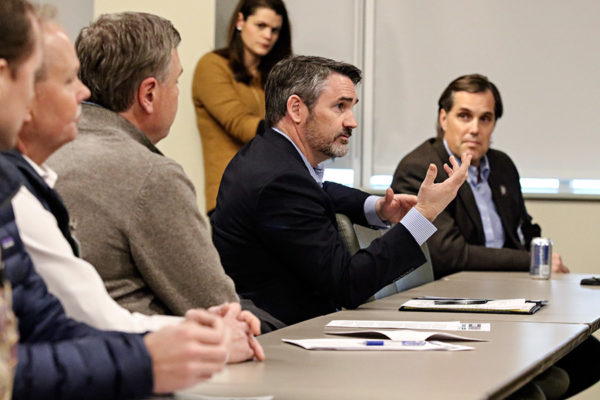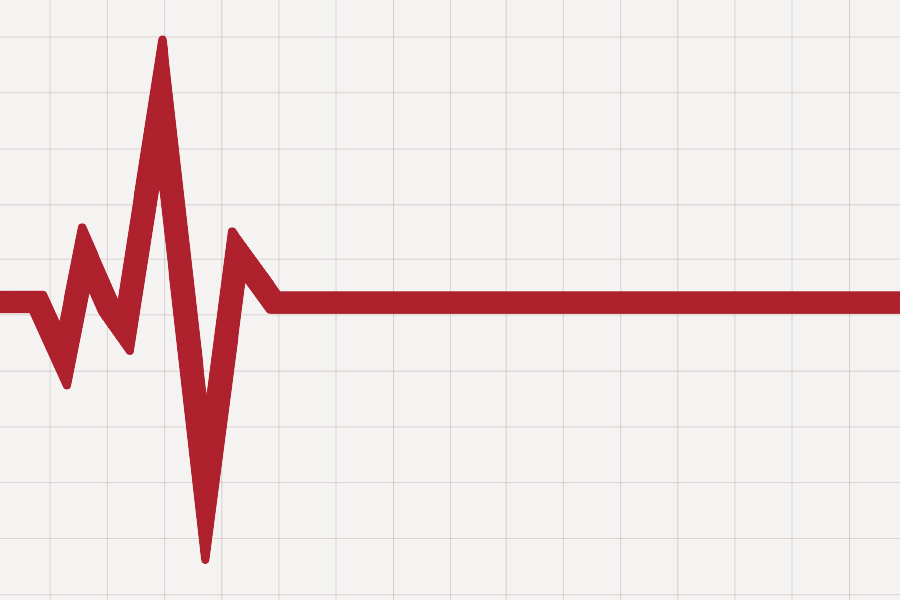Just hours after being sworn into office last week as the nation’s 45th president, Donald Trump signed an executive order that effectively began unraveling the Affordable Care Act.
The move followed Trump’s campaign promise to swiftly repeal the health care law shepherded by his predecessor in 2010 and gave further momentum to Republican lawmakers who have strived for years to pull the plug on Obamacare.
“Repealing and replacing the disastrous law is one of the top jobs that citizens elected us to get done,” Sen. Steve Daines, R-Mont., said on the floor of the U.S. Senate on Jan. 11.
With a majority in both the U.S. House and Senate and control of the White House, the GOP has already taken action on its long-standing goal of dismantling the law and could vote on repeal legislation as early as next month.
Anxiety and uncertainty loom as large as the questions surrounding this new reality. Will Congress agree on a replacement — full or partial — for the massive law? When will these changes hit the nation’s health care system? What will be the ultimate consequences?
Many Americans are cheering the pending repeal, saying Obamacare is deeply flawed as evidenced by the latest rate increases.
Yet others, such as health care officials, seniors and low-income residents, are worried about potentially devastating impacts on the horizon.
If the major provisions of the ACA were repealed, 18 million people could lose their insurance within a year and individual insurance premiums would spike, the nonpartisan Congressional Budget Office said on Jan. 17. If nothing followed the elimination of President Obama’s signature health law, 32 million people could lose health insurance by 2026 — leaving 59 million uninsured Americans — and premiums in the individual insurance market could double, the office said.
Uprooting the ACA without a replacement would dislodge those with preexisting health conditions who previously struggled to find coverage, which includes an estimated 152,000 Montana residents. Residents under the age of 26 would lose the insurance they get from their parents’ plans, including 7,000 in Montana. Those with individual plans in the ACA marketplace — including 51,000 Montanans — would go back to paying for private insurance without possible tax credits, which average roughly $4,000 a year.
At the same time, it would almost certainly send the health care industry into “disarray,” according to local health care officials.
“We are the largest industry in the United States and we have no idea what’s going to happen to us in the next 12 months as we try to plan billions of dollars in advance and try to be good stewards of the health care dollar and think about how strategically we should move forward and take care of patients and communities,” Jason Spring, chief executive of provider network integration at Kalispell Regional Healthcare, said recently.
“To think that we would take an industry that large and completely turn it into disarray seems absurd to me, and it’s really something Congress needs to consider: What will instability do? For smaller facilities and bigger facilities, it will trickle down to the community and the people. Children, elderly — everyone will be touched this.”
At the Flathead County Agency on Aging, which provides residents 60 years and older with a variety of services, including Meals on Wheels and caregiver support, Director Lisa Sheppard said, “We’re getting calls from people who are afraid (of the consequences of repealing the ACA).”
“They’re terrified: ‘What does this mean for me?’”

From the beginning, Montana has had a unique relationship with the Affordable Care Act — the state’s longtime former U.S. Sen. Max Baucus was the primary architect of the sweeping health care law — and the Treasure State is sure to feel the impacts of its repeal.
Analyses by different groups, including the nonpartisan Kaiser Family Foundation, found rural states would bear a significant burden if the ACA were repealed without a similar replacement. Since the law’s inception, rural states have experienced the highest rates of health insurance coverage gains. With the passage of Medicaid expansion, which increased coverage for 61,000 low- and middle-income residents last year, Montana’s uninsured rate has dropped from 20 percent in 2012 to 7.4 percent in 2016. (SEE STORY ON PAGE 32)
Also, Native Americans could face serious impacts because the ACA expanded revenue opportunities for programs and resources in the tribal health care system. When it passed in 2010, the ACA included the Indian Health Care Improvement Act, which permanently authorized a program allowing tribes to handle management of clinics along with incentives for insurance coverage. Native Americans historically have among the highest uninsured rates of any demographic in the U.S. at 28 percent. Due to environmental, economic and social factors, including barriers to accessing health care, Native Americans die an average of 20 years younger than white Montana residents, according to state health department data.
One of the primary benefits of the ACA is how it’s changing the day-to-day relationship between patients and providers in terms of preventative care, according to local health officials.
“Now we’re seeing them enter the health care system, hopefully not at the emergency department when they’re really sick but getting primary care and developing those relationships with providers to treat them and get better health care and preventative care,” Spring with KRH said.
At North Valley Hospital in Whitefish, Medicaid patients encompassed 8 percent of the total patient charges before expansion. Now the hospital serves a percentage in “the high teens,” according to CEO Tate Kreitinger.
“It’s been a really large boost at North Valley and KRMC,” he said.
Spring, Kreitinger and others recently met with U.S. Sen. Jon Tester, D-Montana, in Kalispell as part of Tester’s statewide tour where he met with health care officials to hear their concerns about the ACA and its pending repeal.
In sharp contrast to his colleague, Sen. Daines, Tester has expressed vocal opposition to the repeal of the health care law, citing negative impacts on Montana’s low-income families, Native Americans and seniors.
“In my travels across Montana, folks have been very clear that they do not want Congress taking away their health care,” said Tester. “Seniors are scared that Washington politicians will take away the coverage that they’ve paid into and counted on their whole lives, and hardworking mothers and fathers are terrified that their kids won’t be able to see a doctor.”
Tester says Montana providers would face a jump in uncompensated care and bad debt, which would jeopardize small rural hospitals. His concerns were echoed by officials from Clark Fork Valley Hospital, Sanders County’s largest employer and its primary health care provider.
“We’ve seen a big shift in being able to take care of people in a more constructive manner,” Carla Neiman, chief financial officer at the hospital, said.
“They have coverage and can get preventative care. They can see a provider before their illness becomes catastrophic. Those folks now feel like they can access care and don’t have the concerns they had before about putting it off until something bad happened. If the Affordable Care Act was gone, we would be committed to be there but it would be so much less efficient.”
Tester acknowledged the concerns of those who’ve seen double-digit insurance rate increases under the ACA, while noting that high health care costs were already notorious and continually rising before the law. According to the Congressional Budget Office, roughly 81 percent of Americans qualify for tax credits — averaging $386 a month in Montana — to help offset rising premiums and deductibles. Yet 10 million Americans, including roughly 35,000 Montanans, do not receive tax credits.
“We’ve got to figure out how to put some cost containments around it,” Tester said. “I think the question is, for me, would it be better off taking a look at how we can solve that problem or is the right move to start all over again?”
Daines, a vocal opponent of the health care overhaul since first being elected to the U.S. House in 2012 and then to the Senate in 2014, has held firm on his stance of repealing Obamacare and says he supports a replacement to the law as Republicans continue trying to develop a sound substitute.
“Montanans were promised that with this bill you could keep the health plans that you liked. That was wrong and millions of Americans lost their plans,” he said. “Montanans were assured that coverage under Obamacare would be affordable. For millions of Americans, for thousands of Montanans, nothing could be further from the truth. Montanans were guaranteed that Obamacare would lower health care costs. We’ve witnessed premiums skyrocket since Obamacare’s implementation.”
Others say the possible long-term benefits of the ACA never got a chance to fully materialize.
“It’s unfortunate that we aren’t going to get time to see the program work like it’s supposed to,” Neiman, with Clark Fork Valley Hospital, said.
